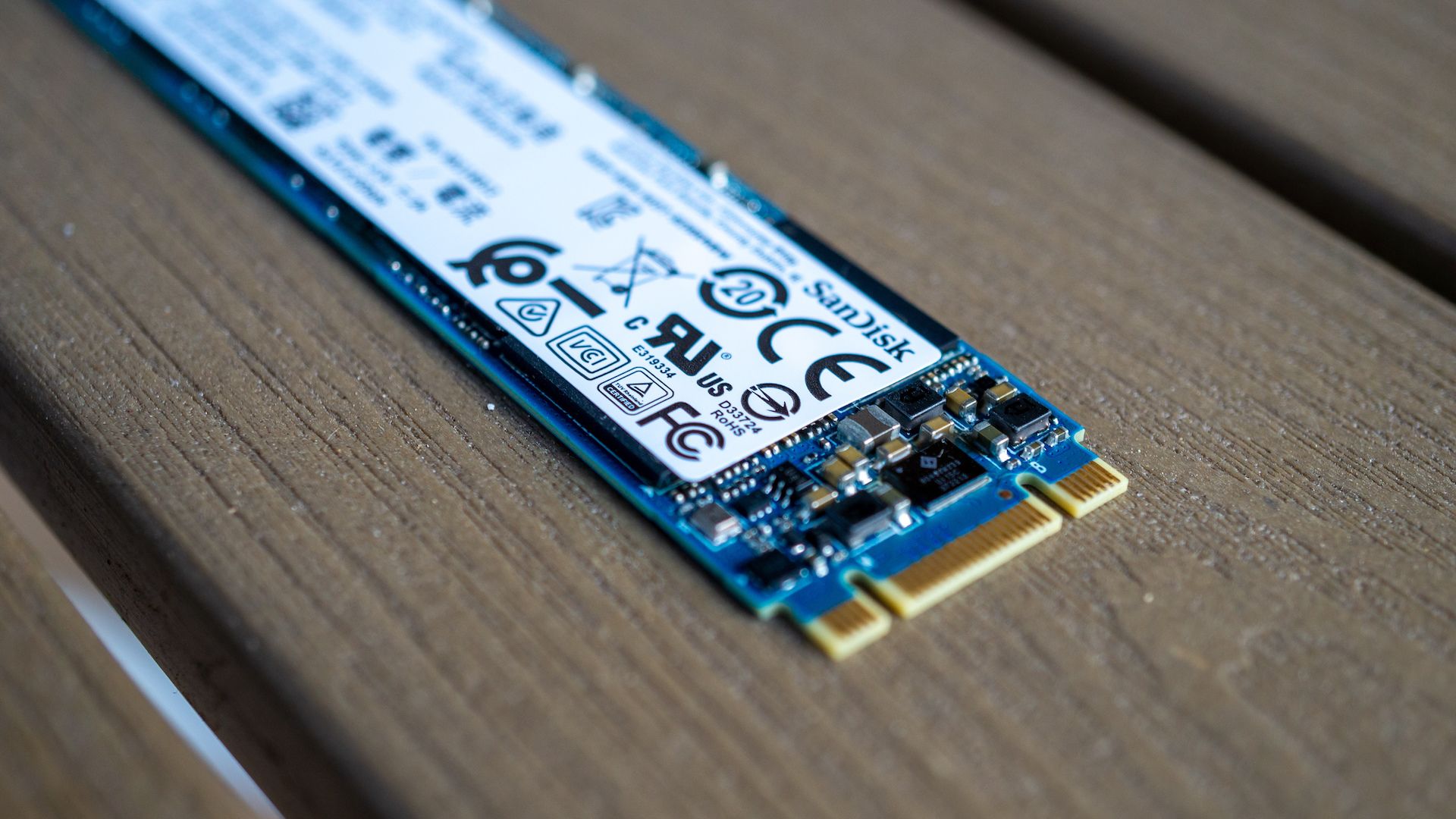
Ultimate Guide to Choosing the Fastest SSDs for Gamers

Ultimate Guide to Choosing the Fastest SSDs for Gamers
Read update
- We’ve reviewed our recommendations and have updated our best for PS5 and best M.2 SSD picks.
Gaming SSDs need to be fast, high-capacity, and able to run the latest games without any hiccups. Having trouble finding the perfect one for you? We can help.
UPDATE: 12/05/2023
We’ve reviewed our recommendations and have updated our best for PS5 and best M.2 SSD picks.
Samsung 980 Pro
Best SSD for Gaming Overall
$90 at Amazon
Crucial P3
Best Budget SSD for Gaming
$40 at Amazon
Crucial P5 Plus
Best M.2 SSD for Gaming
$204 at Amazon
Corsair MP600 PRO XT
Best PCIe 4.0 SSD for Gaming
$110 at Amazon
WD_BLACK SN850X
Best SSD for PS5
$160 at Amazon
WD_Black P50 Game Drive
Best External SSD for Gaming
$315 at Amazon
What to Look for in a Gaming SSD in 2023
There’s nothing more frustrating as a gamer than staring at a loading screen. Games are getting bigger and more graphically impressive, and as a result, they’re taking longer to load. That’s why it’s important to have an SSD , as they can drastically improve boot and load times in addition to making your games feel smoother and more responsive. But with so many options on the market, how do you choose the right one?
The first main factor to consider is storage capacity. Depending on how much space your system still has, you may want to get a higher capacity since a single modern game can take up to over 100GB of storage. Gaming SSDs usually range from 125GB to 4TB, but the price gets relatively more expensive per GB.
However, with games increasing in size, you’ll want to consider getting at least 500GB or 1TB of storage, especially if you plan having multiple games downloaded at once. Opting for a lower-capacity SSD for a boot drive is fine, but you never know when you’ll need the extra space. While you’re thinking about storage, make sure you also choose an SSD that’s compatible with your PC or console.
Next are read and write speeds . The fastest SSDs available are PCIe 4.0 drives with read speeds up to around 7,000 Mb/s and write speeds at 5,000 Mb/s. PCIe SSDs are also known to be much faster than their SATA counterparts .
For longevity, purchasing an SSD with a heat sink is a better option than without one as it helps to dissipate heat better. The cooler your SSD runs, the longer its lifespan will be the more consistent it’ll perform. Having a higher terabytes written rating (TBW) is also important as it’s a measure of how much data can be written to the drive over its lifetime.
Now that you know what to look for in a gaming SSD, let’s take a closer look at the best options available.
| How Did We Research | ||
|---|---|---|
| Models Evaluated | Hours Researched | Reviews Analyzed |
| 16 | 37 | 40 |
How-To Geek’s product recommendations come from the same team of experts that have helped people fix their gadgets over one billion times. We only recommend the best products based on our research and expertise. We never accept payment to endorse or review a product. Read More »
Best SSD for Gaming Overall: Samsung 980 Pro
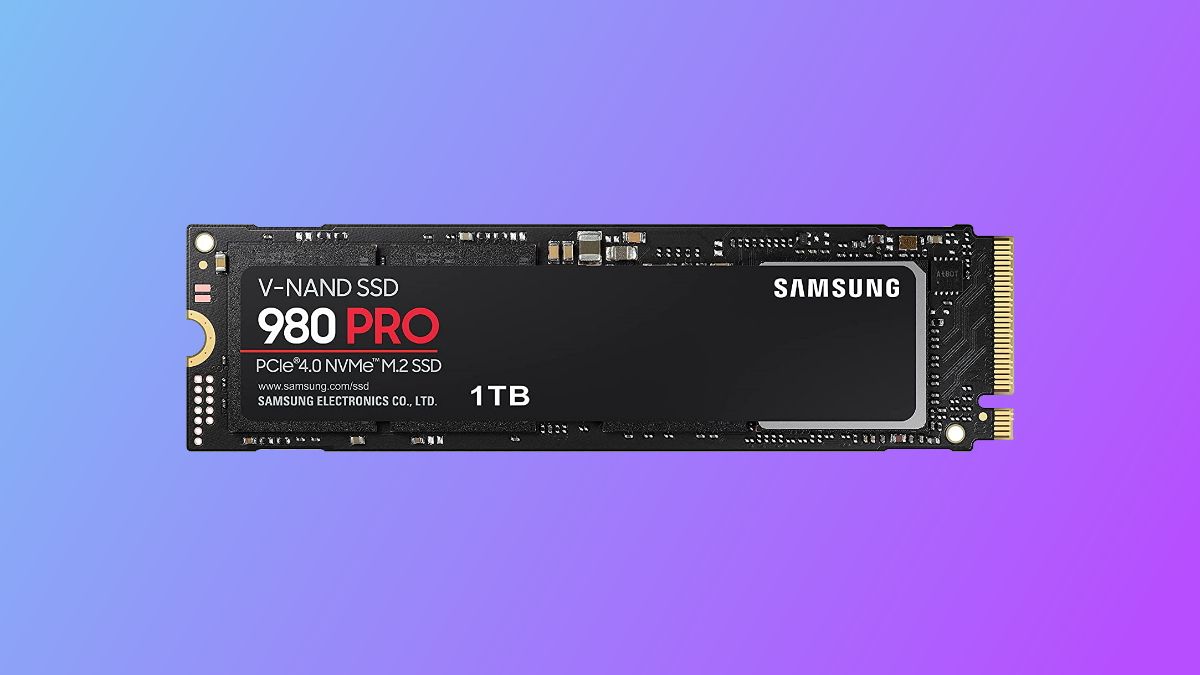
Samsung
| Pros | Cons |
|---|---|
| ✓ Great price for monster performance | ✗ Maximum storage capacity of 2 TB |
| ✓ All components are manufactured in-house | ✗ 2 TB version is expensive |
| ✓ Still a great option for PCIe 3.0 users | |
| ✓ PlayStation 5 compatible | |
| ✓ Five-year warranty |
The Samsung 980 Pro is a $230 1TB high-performance SSD that uses the latest PCIe technology that fits into most modern PCs and consoles. It delivers read and write speeds up to 7,000 Mb/s and 5,000 Mb/s respectively.
For a little less than double the price, you can upgrade to 2TB . Depending on the number of applications, programs, or games you want to run at lightning speed, getting the extra storage space might be worth it.
Related: PCIe 4.0: What’s New and Why It Matters
The Samsung 980 Pro uses PCIe Gen 4 technology designed for hardcore and competitive gamers that want more and faster bandwidth while gaming. It’s also ideal to run any demanding application that’s heavy on graphics .
To provide stable and consistent performance, as well as longevity, the 980 Pro offers reliable thermal control using a nickel coating that effectively dissipates heat. The drive’s designed to last, as it has an impressive terabyte written (TBW) rating of 300 TBW at 500GB up to 1,200 TBW at 2TB.
The 980 Pro is also fully compatible with PlayStation 5 and PCIe 3.0 rigs. However, installing the drive in a 3.0 slot will limit the speeds–it’ll still be over 3,000 Mb/s. You can also install Samsung Magician to update firmware and further optimize the drive’s performance and monitor its health.
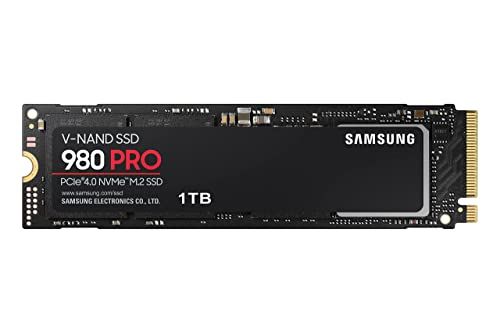

Best SSD for Gaming Overall
Samsung 980 Pro
$90 $155 Save $65
This premium gaming SSD is great for competitive gamers who run heavy-duty applications and games.
$90 at Amazon Best Buy Samsung
Best Budget SSD for Gaming: Crucial P3
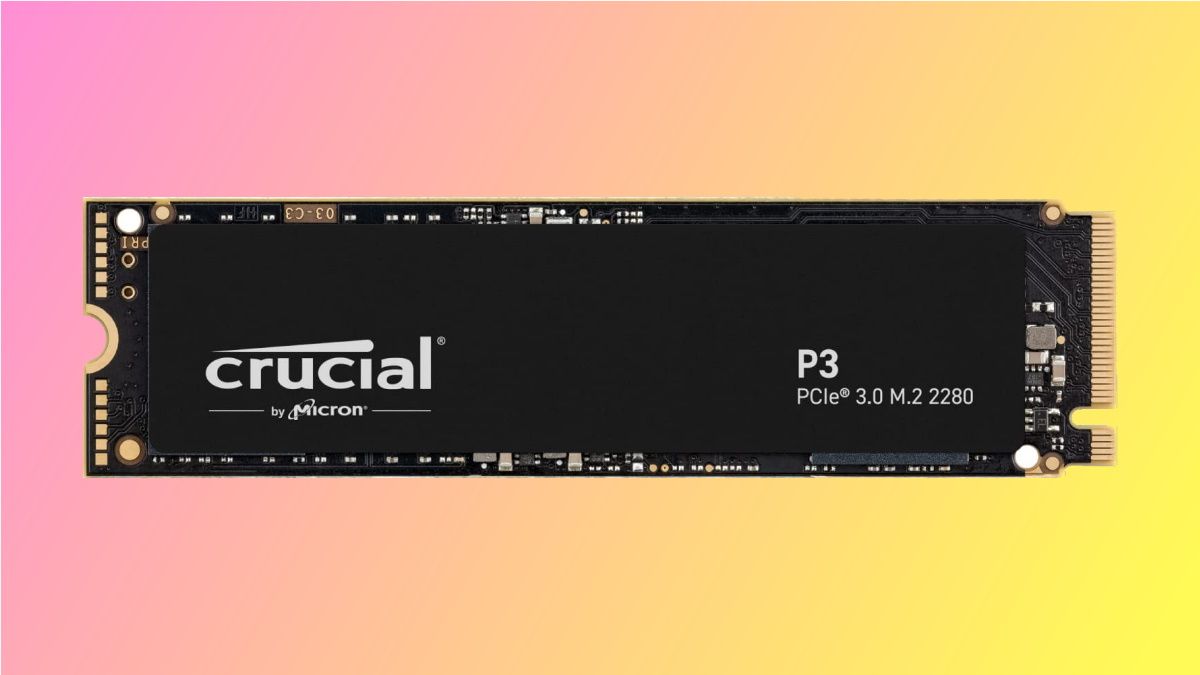
Crucial
| Pros | Cons |
|---|---|
| ✓ Great performance considering the price | ✗ Slower than PCIe 4.0 options |
| ✓ Good read and write speeds for PCIe 3.0 | ✗ Low TBW rating |
| ✓ Excellent cost per GB | |
| ✓ Five-year warranty |
If you’re looking for a speed upgrade, but you’re on a budget, you might consider going with a PCIe Gen 3 drive instead of the more recent Gen 4. The Crucial P3 is an excellent budget pick, starting at less than $50 for 500GB, and it comes from a brand with an excellent reputation.
The 1TB version costs you slightly more at around $65, or you can increase to 2TB at just under $125. There is also a 4TB version, but this isn’t the most cost-effective option at over $300. Unlike the previous generation, there is no difference in write speeds between capacities.
While you won’t get the same speeds you would with the latest version of NVMe, the Crucial P3 still offers decent performance with sequential read speeds up to 3,500MB/s. Write speeds are only slightly slower at 3,000MB/s.
Assuming you’re upgrading from another NVMe drive, you may not notice much difference in speed. That said, if you’re upgrading from a hard drive setup or even SATA drives, you’ll definitely notice the difference in speed.
Regarding longevity, Crucial claims a TBW rating of 440 TBW for the 2TB model. This may be lower than some other options, but Crucial does offer a five-year warranty, which means the company stands behind the P3.
If you’re looking for a bigger upgrade and want a PCIe 4.0 version, the Crucial P3 Plus offers faster read and write speeds.


Best Budget SSD for Gaming
Crucial P3
$40 $60 Save $20
While they rely on older PCIe 3.0 technology, Crucial’s P3 SSDs offer excellent performance for that generation, and they cost far less than you’d expect given the performance.
$40 at Amazon Best Buy Adorama
Best M.2 SSD for Gaming: Crucial P5 Plus
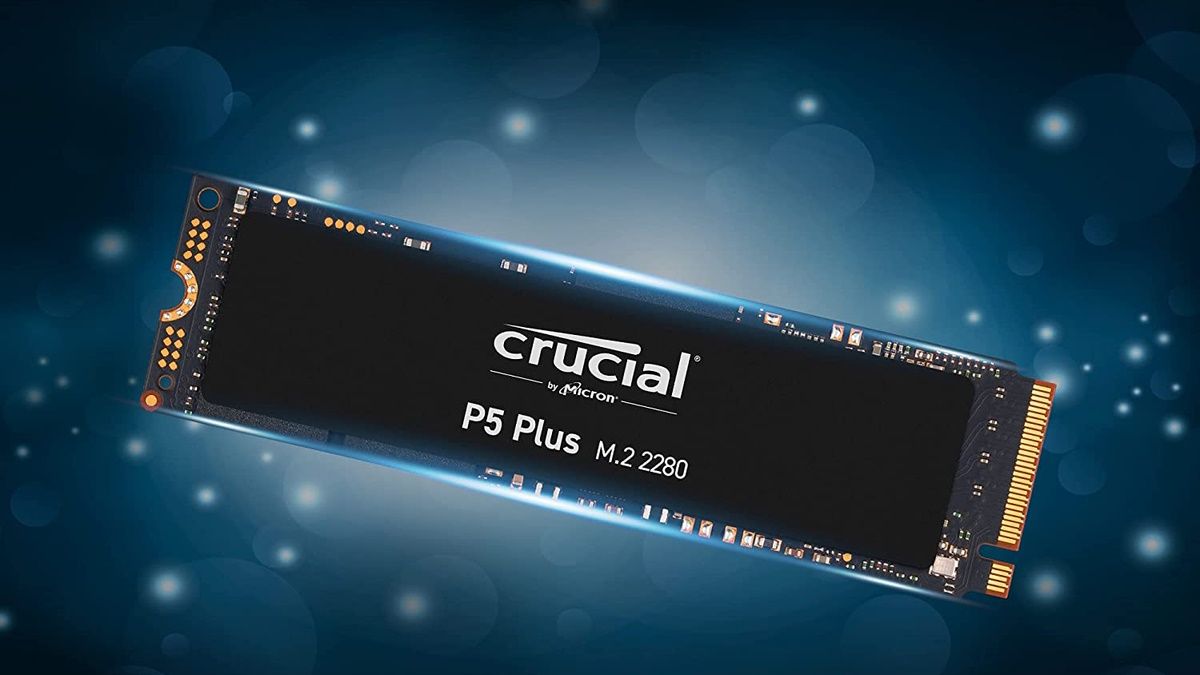
Crucial
| Pros | Cons |
|---|---|
| ✓ Great performance, especially for the price | ✗ Slightly power hungry at idle |
| ✓ Optional heat sink available | |
| ✓ Comes in 500GB to 2TB options | |
| ✓ Good price to capacity ratio |
If you’re buying an SSD for gaming, two things are important: speed and capacity. The major strength of the Crucial P5 Plus is just how much of that speed storage you get for the price.
While they aren’t the absolute fastest you’ll find, the P5 Plus still offers respectable speeds with read speeds of up to 6,600MB/s and write speeds of up to 5,000MB/s. When you consider that you can get 2TB for $150, that’s pretty impressive.
This is a PCIe 4.0 NVMe drive, but it’s backward compatible with PCIe 3.0. This means that if you’re buying an SSD for an older machine with the idea of eventually moving it to a new computer, this is a perfect match.
The P5 Plus is available with or without a heat sink. Whether you’ll need one or not largely depends on how much time your drive will spend in use, but when in doubt, opt for the heat sink, as it will extend the longevity of your SSD.
Without a heatsink, you can find the Crucial P5 Plus in 500GB , 1TB , and 2TB options. If you want a heat sink, you have 500GB and 2TB options available.


Best M.2 SSD for Gaming
Crucial P5 Plus
It’s nearly cheap enough to consider as a budget option, but Crucial P5 Plus SSDs offer plenty of performance, even if they don’t cost as much as you may imagine. Essential if you want to keep plenty of games installed.
Best PCIe 4.0 SSD for Gaming: Corsair MP600 PRO XT
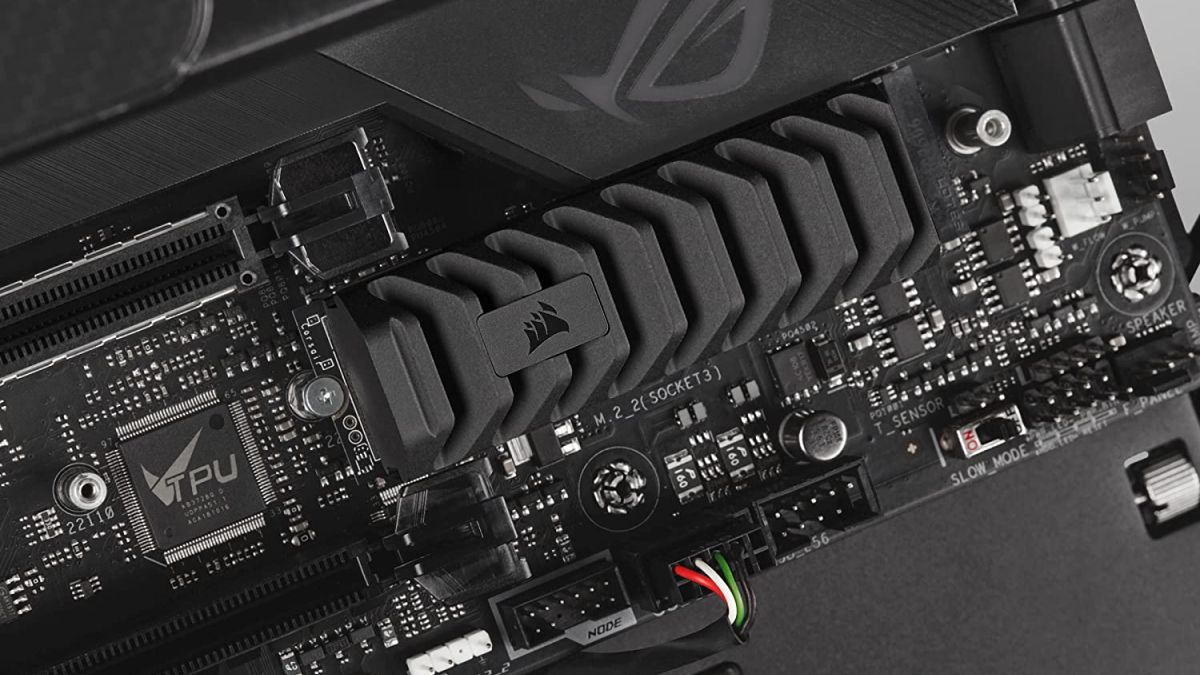
Corsair
| Pros | Cons |
|---|---|
| ✓ Purchase up to 4 TB of storage | ✗ Pretty expensive |
| ✓ Heavy-duty heat sink | ✗ 1 TB and 2 TB have the same TWB rating |
| ✓ High TWB ratings | |
| ✓ Five-year warranty |
Corsair’s MP600 PRO XT is one of the few gaming SSDs that you can purchase for up to 4TB of storage. It is pricey, but this SSD delivers serious read and write speeds up to 7,100 Mb/s and 6,800 Mb/s respectively.
The MP600 PRO XT is a powerful PCIe Gen 4 gaming SSD that effectively combines performance and endurance using high-density 3D TLC NAND. This is in addition to the aluminum heat spreader that disperses heat and reduces throttling. It also integrates a liquid-cooling option that sets it apart from other options.
Related: The Best Internal SSDs of 2023
The drive leverages NVMe Protocol 1.4 to provide maximum bandwidth. Combined with the heavy-duty heat sink, the MP600 PRO XT is one of the best 4.0 SSDs for those who value consistent and fast speeds. The 1TB and 2TB versions have a 700 TBW rating, but it jumps to an astonishing 3,000 TBW at 4TB.
Upgrading to 2TB isn’t too expensive, while upgrading to 4TB is a hefty $800. If you’re looking to go full out on storage, you can get the MP400 version that offers a massive 8TB of storage. With more storage, you can store many years worth of games and data on a high-performance drive.
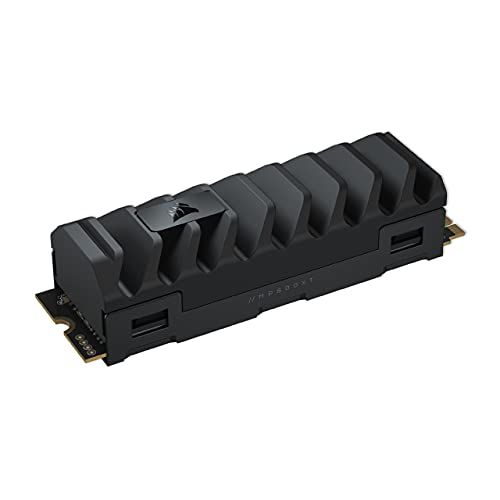

Best PCIe 4.0 SSD for Gaming
Corsair MP600 PRO XT
Although expensive, the MP600 PRO XT does an excellent job at keeping cool while delivering consistently high speeds.
Best SSD for PS5: Western Digital WD_BLACK SN850X
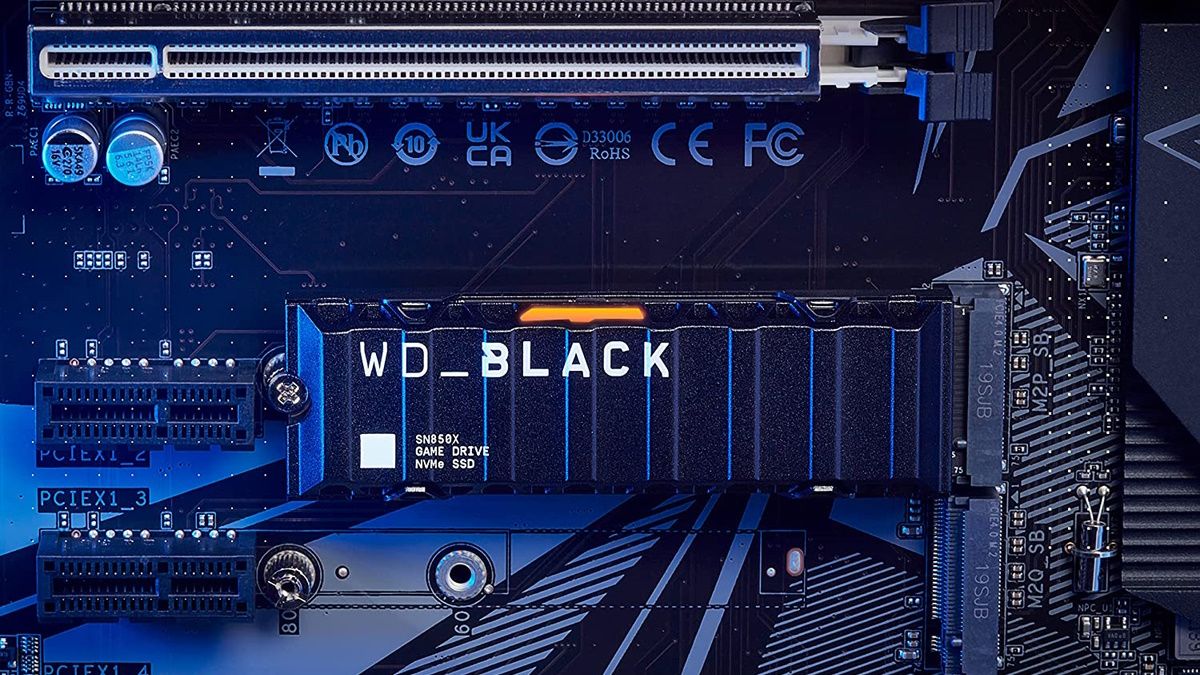
Western Digital
| Pros | Cons |
|---|---|
| ✓ Great performance overall | ✗ On the pricey side |
| ✓ Faster than the previous SN850 model | |
| ✓ Heat sink adds to the SSD’s longevity | |
| ✓ 5-year warranty |
While the Xbox Series consoles limit you to pricey proprietary storage, the PlayStation 5 makes it much easier to expand the internal storage. If you need more space, you can’t go wrong with the Western Digital WD_BLACK 2TB SN850X .
As the name implies, this is essentially the WD_Black SN850 with increased speeds. This new drive features write speeds up to 7,300MB/s and read speeds up to 6,350MB/s, which is nearing the limits of the PCIe 4.0 spec.
If you’ve paid attention to the guidelines for finding the right SSD for your PS5 , you’re probably aware that Sony recommends a heat sink. The WD_BLACK SN850X features said heat sink, which will help extend your SSD’s life, meaning you don’t need to worry about replacing it.
Heat sink aside, Western Digital specs its WD_BLACK drives at 600 TBW, which means even if you’re constantly ready and writing tons of data, the drive will last. Unless you plan to use your PS5 20 years from now, you shouldn’t worry about upgrading the drive.
With the heat sink, the Western Digital WD_BACK SN850X is available in 1TB and 2TB varieties. A 4TB version is also available, but without a heat sink.
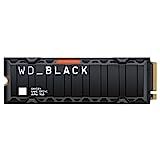

Best SSD for PS5
WD_BLACK SN850X
$160 $200 Save $40
The WD_BLACK SN850X is even faster than the SN850 it replaces, making it an even better option for your PlayStation 5. The Sony-recommended heat sink helps ensure that your drive will last just as long as your PS5 does.
Best External SSD for Gaming: WD_BLACK P50 Game Drive
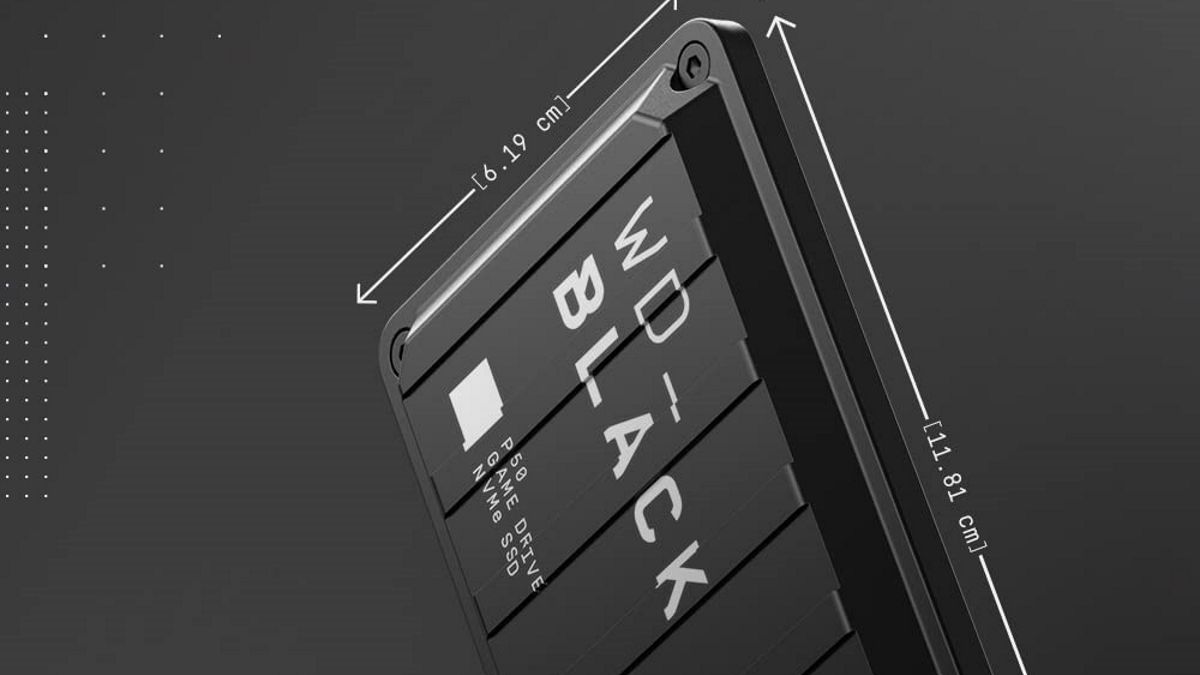
| Pros | Cons |
|---|---|
| ✓ Fast USB interface speed | ✗ Slightly bulky |
| ✓ Reliable portability | ✗ No AES 256-bit encryption |
| ✓ Comes with USB-C to USB-A cable | |
| ✓ Five-year warranty |
At 1TB for $250, WD_BLACK P50 Game Drive is one of the best external SSDs for gaming, delivering read and write speeds up to 2,000 Mb/s. It’s a USB-3.2 Gen 2 x2 SSD that’s compatible with PlayStation, Xbox, PC, and Mac.
The smaller 500GB size costs $140, and you can upgrade to 2TB for $350 or 4TB for $560. The read and write speeds remain the same for all capacities, so you can choose one based on how much storage you need.
The P50 offers decent speed for an external SSD but is still slower than your average PCIe 3.0 drive. However, you’ll still have no problem booting up your system and quickly hopping into the action of your favorite games or transferring files. It’ll dramatically upgrade your standard portable drive or USB flash drive .
The simple plug-and-play design makes it easy to get started, and the included USB-C to USB-C and USB-C to USB-A cables gives you more compatibility with other devices. The Gen 2 x2 interface’s designed to work with the latest hardware and will last many years.
For optimized speed and long-term use, the P50 features an impressive 20 GB/s USB interface speed, protected by a shock-resistant and forged aluminum cover casing for reliable portability. The drive’s capable of delivering twice the bandwidth of other external gaming SSDs, making it ideal for gamers who strive for the best performance possible.
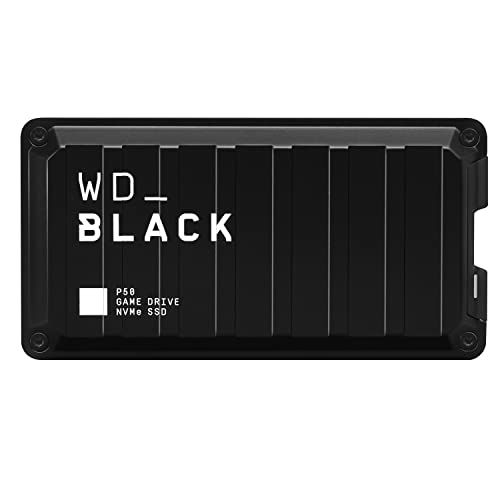

Best External SSD for Gaming
WD_Black P50 Game Drive
For an external SSD, the P50 delivers decent speeds that easily stump your average HDD or USB stick.
$315 at Amazon Best Buy Lenovo
Also read:
- [New] Triumphs in Transparency Reddit's Top Posts Reviewed (10)
- [Updated] Elite Powerhouses of Desktop Technology for 2024
- [Updated] In 2024, Mastering Screen Sharing on Skype for Remote Collaboration
- [Updated] In 2024, Overcoming Low-Resolution Output in OBS
- [Updated] Simple Steps for iPhone Screen Capture
- 2024 Approved Find Your Favorites Ranking of 8 Preferred MP3 Extractors (Android)
- Analyzing the Samsung Galaxy A20 - Budget-Friendly Powerhouse or Just Decent?
- APC Back-UPS Pro Ebr> 1500 VA Unit Review: Excellent Capacity, Extensive Port Availability and Hot Swappable Batteries Feature
- Discover the Stealthy Performance of the Acer Aspire C27: Compact Yet Capable All-in-One PC
- Experience Tech Evolution with Apple's M1-Powered MacBook Pro 13-Inch Laptop: Expert Review and Insights
- Garmin Vivoactive 3: Enhance Your Fitness Routine with Built-In Music and Smart Connectivity
- In 2024, Full Guide to Catch 100 IV Pokémon Using a Map On Itel P55 | Dr.fone
- In-Depth Analysis of the DJI Phantom 4 Pro v2.0 - Soaring Close to Aerial Excellence
- In-Depth Look at PetSafe's Automatic Feeder: Helping You Maintain Optimal Pet Health and Weight
- Mastering Microsoft Updates: Overcoming Error 80244019 on Your Windows PC
- Perfect Your Visual Storytelling Inserting Titles Into Photo Videos on Windows
- Sony's Compact Bluetooth Beautician - LX310BT
- The Stanley J5C09 Cutting Machine: Big and Effective for Demolition Tasks
- Ultimate 360° Eye Exploration Test
- Title: Ultimate Guide to Choosing the Fastest SSDs for Gamers
- Author: Steven
- Created at : 2025-02-15 10:35:52
- Updated at : 2025-02-20 02:59:19
- Link: https://buynow-marvelous.techidaily.com/ultimate-guide-to-choosing-the-fastest-ssds-for-gamers/
- License: This work is licensed under CC BY-NC-SA 4.0.